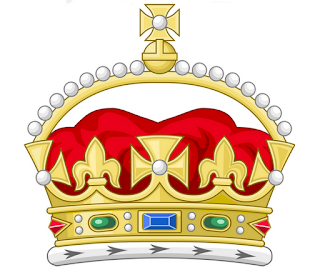 Floyd McClung posted a story on his blog this morning. He writes that he doesn't know if it's a true story, but it is a story of truth. He is right about that.
Floyd McClung posted a story on his blog this morning. He writes that he doesn't know if it's a true story, but it is a story of truth. He is right about that.We are called to encourage one another. This story is about encouraging, how to encourage, what it takes to tend to a person's heart so that the growth that happens in them becomes permanent. It's a good story. We should all try to find ways to encourage those around us.
No doubt we'll all find different ways to do it, but the important thing is not how I encourage, it's that I do encourage, that I am an encourager, that I have a habit and a heart to encourage.
Here's the story...
One day a teacher asked her students to list the names of the other students in the room on two sheets of paper, leaving a space between each name.
Then she told them to think of the nicest thing they could say about each of their classmates and write it down.
It took the remainder of the class period to finish their assignment, and as the students left the room, each one handed in the papers.
That Saturday, the teacher wrote down the name of each student on a separate sheet of paper, and listed what everyone else had said about that individual
On Monday she gave each student his or her list. Before long, the entire class was smiling. ‘Really?’ she heard whispered. ‘I never knew that I meant anything to anyone!’ and, ‘I didn’t know others liked me so much,’ were most of the comments.
No one ever mentioned those papers in class again. She never knew if they discussed them after class or with their parents, but it didn’t matter. The exercise had accomplished its purpose. The students were happy with themselves and one another. That group of students moved on.
Several years later, one of the students was killed in Vietnam and his teacher attended the funeral of that special student. She had never seen a serviceman in a military coffin before. He looked so handsome, so mature.
The church was packed with his friends. One by one those who loved him took a last walk by the coffin. The teacher was the last one to bless the coffin.
As she stood there, one of the soldiers who acted as pallbearer came up to her. ‘Were you Mark’s math teacher?’ he asked. She nodded: ‘yes.’ Then he said: ‘Mark talked about you a lot.’
After the funeral, most of Mark’s former classmates went together to a luncheon. Mark’s mother and father were there, obviously waiting to speak with his teacher.
‘We want to show you something,’ his father said, taking a wallet out of his pocket ‘They found this on Mark when he was killed. We thought you might recognize it.’
Opening the billfold, he carefully removed two worn pieces of notebook paper that had obviously been taped, folded and refolded many times. The teacher knew without looking that the papers were the ones on which she had listed all the good things each of Mark’s classmates had said about him.
‘Thank you so much for doing that,’ Mark’s mother said. ‘As you can see, Mark treasured it.’
All of Mark’s former classmates started to gather around. Charlie smiled rather sheepishly and said, ‘I still have my list. It’s in the top drawer of my desk at home.’
Chuck’s wife said, ‘Chuck asked me to put his in our wedding album.’
‘I have mine too,’ Marilyn said. ‘It’s in my diary’
Then Vicki, another classmate, reached into her pocketbook, took out her wallet and showed her worn and frazzled list to the group. ‘I carry this with me at all times,’ Vicki said and without batting an eyelash, she continued: ‘I think we all saved our lists’
That’s when the teacher finally sat down and cried. She cried for Mark and for all his friends who would never see him again.
The density of people in society is so thick that we forget that life will end one day. And we don’t know when that one day will be.
So please, tell the people you love and care for, that they are special and important. Tell them, before it is too late, tell them while you have time. Tell them in carefully crafted but simple, heartfelt words of love why you appreciate them, the good you see in them, the love and hope you carry in your heart for them.






